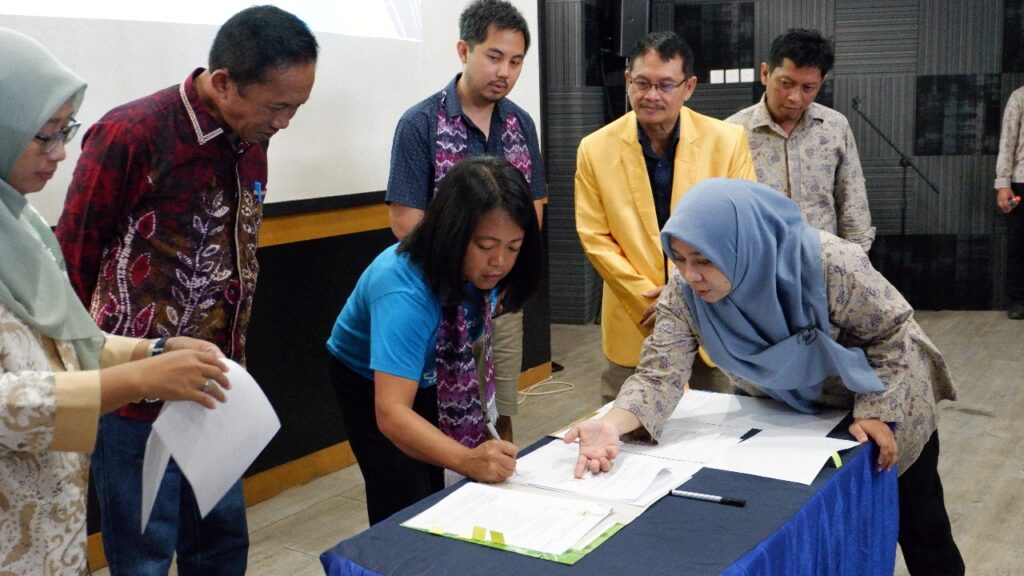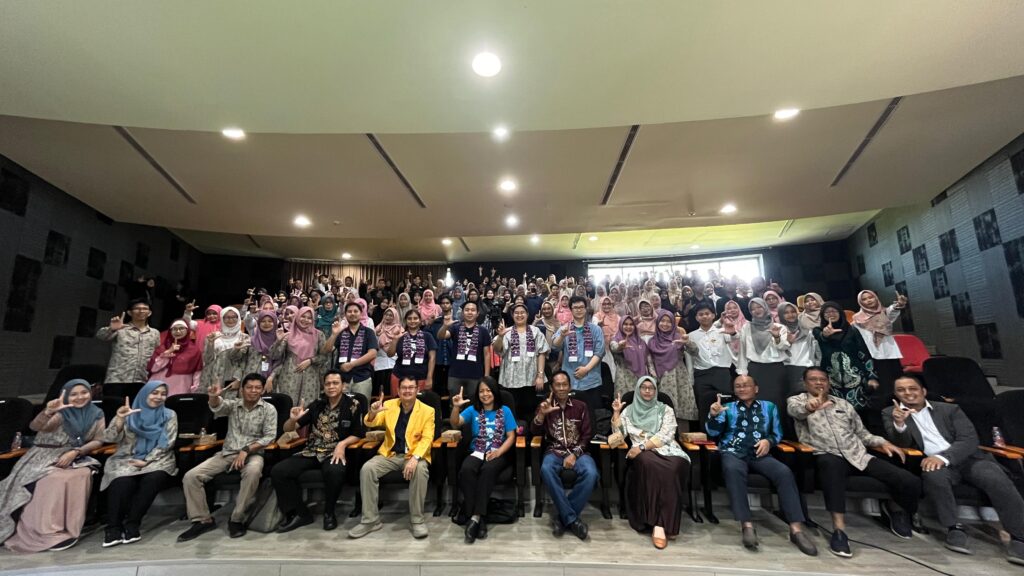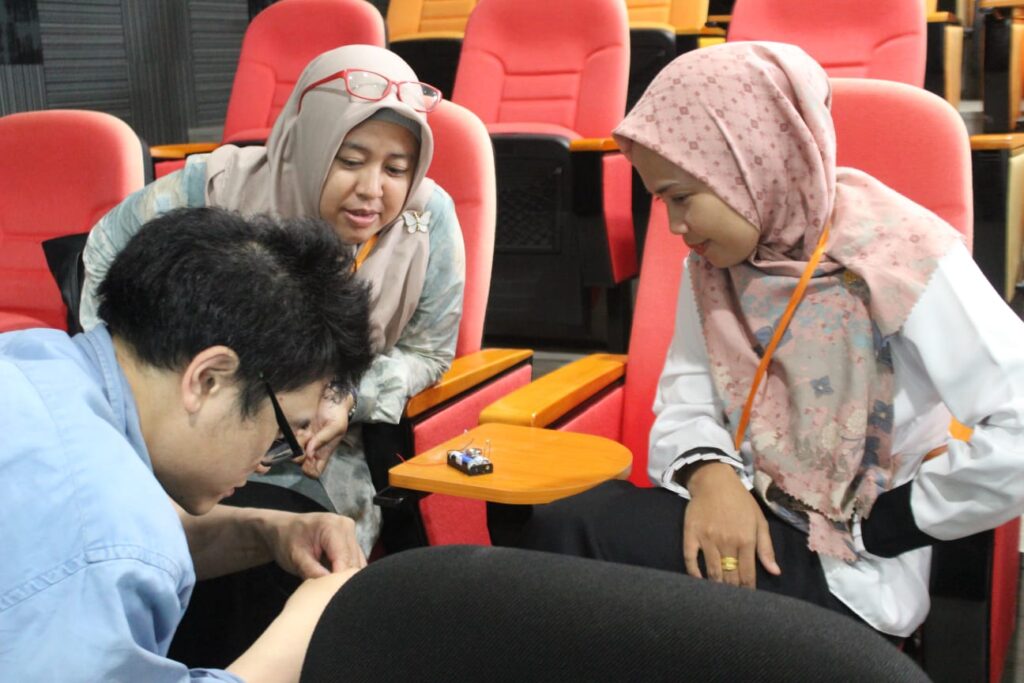28-29/05/2024


Banjarmasin – After going through a number of stages, the Natural Science Education Study Program (PS) of the Faculty of Teacher Training and Education (FKIP) of Universitas Lambung Mangkurat (ULM) finally carried out the implementation of cooperation as well as the signing of a cooperation agreement document with an international Non-Governmental Organization (NGO), Pueblo Science based in Toronto, Canada. This activity was held on May 28-29, 2024 at the ULM SAC (Student Activity Center) complex.
The activity was opened by the Deputy Dean for General Affairs and Finance, Dharmono and attended by the Head of ULM’s Planning, Cooperation and Public Relations Bureau (BPKH), Parmasihat; Head of the Cooperation and Public Relations Management Unit (UPKH), Emma Rosana Febriyanto; Coordinator of Science Education; Syubhan Annur; lecturers and students of Social Studies Education; and representatives of Pueblo Science led by its Executive Director, Mayrose Salvador and instructors: Rommel Santos, Stanley Siu Cheng Wong, Jahnavi Shah, Mary Rose Claire Galbo, and Mark Steven Santiago. In his opening remarks, Dharmono expressed his gratitude and appreciation to the faculty for organizing this collaboration. He also hoped that this cooperation would continue and grow. “Future cooperation might include research development or innovation in wetland-based teaching and learning. It is very good if we can work with outsiders for the advancement of our science,” he said.
The first part of the activity was the signing of the cooperation document and the second part was the learning workshop . The cooperation developed in this cooperation agreement is to develop learning tools that cover specific grade 7 to 10 curriculum topics in chemistry, physics, biology, integrated science and mathematics that both match the local teaching curriculum and are relevant to students’ daily lives, train local prospective teachers to use STEM (Science Technology Engineering Mathematic) tools in their own classrooms, empower prospective student teachers to train other teachers to utilize more effective pedagogy, and help teachers develop their own experiments from locally available and inexpensive materials.
The second part of the activity was a science-STEM curriculum training for students with the theme Empowering Prospective Teachers to Equip the Next Generation of Innovators. This workshop activity lasted for 2 full days from 7:30 to 16:30 WITA which consisted of 6 STEM experiments using simple materials and was facilitated by 6 experienced instructors from Pueblo Science. The participants of this activity amounted to 150 people consisting of Science Education Study Program students and science teacher representatives from 16 schools in Banjarmasin. 150 people were divided into 6 groups who took turns following each experimental post on STEM.
Dr. Mayrose Salvador, Executive Director of Pueblo Science, explained about simple machines. This material explains about kinetic energy and potential energy, where participants change the components to see the effect on the speed of the car. Rommel Santos, also a Pueblo Science instructor, explained about natural selection and evolution . Participants were asked to pick up seeds using a specific tool in 10 seconds and count how many seeds they could collect if they used a tool that matched the size of the seed and one that did not. This material explains how bird beaks adapt to the shape and type of food to survive.
Another instructor, Stanley Siu, explained about simple motors. This material explains about converting electrical energy into mechanical motion using the laws of electromagnetics. Instructor Jahnavi Shah explained about earthquakes . This experiment used biscuits, marshmallows, candies, and toy candles to create a sturdy building. Participants were asked to construct a building with the various materials and see what kind of structure would be most resistant to strong vibrations. This material explains about the layers of the earth and how the building structure is appropriate in certain areas. Meanwhile, Mary Rose Claire Galbo explained about heat powered turbine . This material explains about convection currents, where hot air produced by candles moves up to the top of the spiral turbine so that cold air goes down below which then the cold air is reheated by candles, and so on so that the turbine continues to move spirally.
According to Korprodi of Science Education, Syubhan Annur, this activity was initially initiated by several lecturers of Science Education who compiled an international program to support the achievement of the Main Performance Indicators (IKU) of Science Education. “This is one of the first international cooperation steps in 2024. God willing, in the future we will continue to build cooperation with various parties both at home and abroad so that the IKU target, especially IKU 6 related to international cooperation in Science Education will be achieved sustainably. All of this we do for the advancement of FETT and ULM in order to build the institution’s good name in the field of knowledge and the advancement of education in the region, “he added enthusiastically. (admin)


